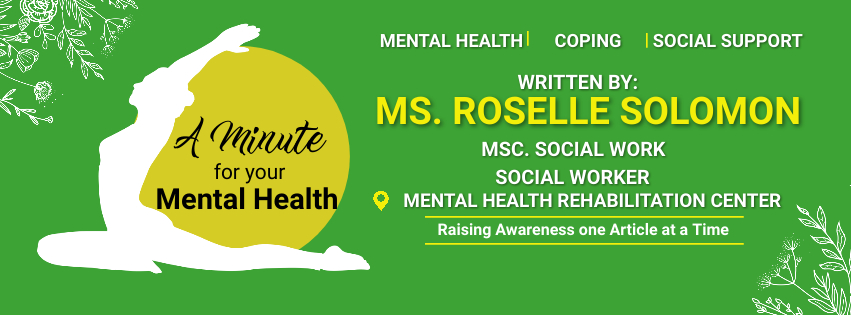
Have you ever thought about what is Mental Illness? If you have ever thought about Mental Illness, do you automatically think of that dirty individual who is acting very strange or aggressive in your community? Let’s break the Stigma; Mental illness cannot be placed into one bracket as there are approximately one hundred and fifty-seven (157) mental disorders. These disorders include mood disorders, psychotic disorders, personality disorders, stress related disorders, neurodevelopmental disorders, eating disorders, and substance related disorders just to name a few categories.
So, you may be asking yourself what is a Mental Disorder? A Mental Disorder according to the World Health Organization “comprises of a broad range of problems, with different symptoms. They are generally characterized, however, by some combination of disturbed thoughts, emotions, behavior and relationships with others”
Who is at risk for developing a Mental Disorder? Anyone is at risk of developing a Mental Disorder. According to the World Health Organization, Mental Health and Mental Disorders are linked to a person’s ability to manage their thoughts, emotions, behaviors and their interaction with others. There are also social, environmental and genetic factors that may contribute to a person developing a Mental Illness. It is not limited to any one factor and there can be many factors that contribute to an individual developing a Mental Illness.
So, what are some warning signs that a person may be developing a Mental Illness?
Signs and symptoms of a Mental Disorder are:
Feeling sad or down
Confused thinking or reduced ability to concentrate
Excessive fears or worries, or extreme feelings of guilt
Extreme mood changes of highs and lows
Withdrawal from friends and activities
Significant tiredness, low energy or problems sleeping
Detachment from reality (delusions), paranoia or hallucinations
Inability to cope with daily problems or stress
Trouble understanding and relating to situations and to people
An unusual drop in functioning, at school, work or social activities. For example, quitting your favorite sport or not going to work even though that may come with consequences
Problems with alcohol or drug use
Major changes in eating habits
Sex drive changes
Excessive anger, hostility or violence
Suicidal thinking
I do not want you to think that because you are experiencing one of these signs that you are developing a Mental Illness but it has to be six (6) or more, consistently over a two-week period or more and will begin to interfere with one’s ability to function productively within their home, workplace or school.
Should you start developing signs and symptoms, what can you do?
Speak with a Nurse, Doctor, Counsellor, Psychologist, Social Worker and enquire about getting assistance. Or contact the Mental Health Rehabilitation Center at 784-458-6185 or 784-458-4240.
Written by:
Ms. Roselle SolomonMSc Social Work





